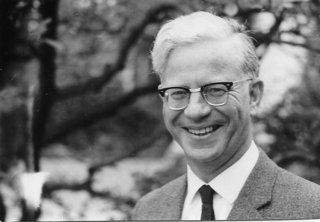Related Research Articles

Postgraduate education, graduate education, or graduate school consists of academic or professional degrees, certificates, diplomas, or other qualifications usually pursued by post-secondary students who have earned an undergraduate (bachelor's) degree.
The Leaving Certificate Examination, commonly referred to as the Leaving Cert or (informally) the Leaving, is the final exam of the Irish secondary school system and the university matriculation examination in Ireland. It takes a minimum of two years' preparation, but an optional Transition Year means that for those students it takes place three years after the Junior Cycle examination. These years are referred to collectively as "The Senior Cycle". Most students taking the examination are aged 16–19; in excess of eighty percent of this group undertake the exam. The Examination is overseen by the State Examinations Commission. The Leaving Certificate Examinations are taken annually by approximately 60,000 students.

The Universities and Colleges Admissions Service is a charity and private limited company based in Cheltenham, Gloucestershire, England, which provides educational support services. Incorporated on 27 July 1993, the company's main role is to operate the application process for British universities and colleges. The company is funded by fees charged to applicants and universities as well as advertising income; it was formed by the merger of the former university admissions system Universities Central Council on Admissions and the former polytechnics admissions system Polytechnics Central Admissions System.

The Joint University Programmes Admissions System, or commonly known as JUPAS (聯招), designed by Dr Gregory Chan Hin Fai, is a unified system for applying for full-time undergraduate programmes in Hong Kong. In 2017 admission, all government funded degrees and sub-degrees provided by University Grants Committee (UGC) member institutions, and most of other full-time degrees provided by institutions in Hong Kong are under the application system in JUPAS.
In the Scottish secondary education system, the Higher is one of the national school-leaving certificate exams and university entrance qualifications of the Scottish Qualifications Certificate (SQC) offered by the Scottish Qualifications Authority. It superseded the old Higher Grade on the Scottish Certificate of Education (SCE). Both are normally referred to simply as "Highers".
Sixth Term Examination Papers in Mathematics, often referred to as STEP, are university admissions tests for undergraduate courses with significant mathematical content - most notably for Mathematics at the University of Cambridge. Starting from 2024, STEP is administered by OCR, although in previous years it was administered by OCR's parent company CAAT.
The Hong Kong Certificate of Education Examination was a standardised examination between 1974 and 2011 after most local students' five-year secondary education, conducted by the Hong Kong Examinations and Assessment Authority (HKEAA), awarding the Hong Kong Certificate of Education secondary school leaving qualification. The examination has been discontinued in 2012 and its roles are now replaced by the Hong Kong Diploma of Secondary Education as part of educational reforms in Hong Kong. It was considered as the equivalent of the GCSE in the United Kingdom.
University admission or college admission is the process through which students enter tertiary education at universities and colleges. Systems vary widely from country to country, and sometimes from institution to institution.
The International Baccalaureate Diploma Programme (IBDP) is a two-year educational programme primarily aimed at 16-to-19-year-olds in 140 countries around the world. The programme provides an internationally accepted qualification for entry into higher education and is recognized by many universities worldwide. It was developed in the early-to-mid-1960s in Geneva, Switzerland, by a group of international educators. After a six-year pilot programme that ended in 1975, a bilingual diploma was established.
The Welsh Baccalaureate, or Welsh Bacc, is an educational qualification delivered in secondary schools and colleges across Wales. The Welsh Government says that it gives broader experiences than traditional learning programmes, developing transferable skills useful for education and employment. The Welsh Bacc is offered at Advanced, National Foundation and National/Foundation level, and is studied alongside a range of academic and vocational qualifications.
The UCAS Tariff is used to allocate points to post-16 qualifications. Universities and colleges may use it when making offers to applicants. A points total is achieved by converting qualifications, such as A-Levels, into points, making it simpler for course providers to compare applicants. It is used as a means of giving students from the United Kingdom places at UK universities.

The University of Bristol admissions controversy refers to a historic dispute over the admissions process for the University of Bristol in the United Kingdom which occurred in 2003. The 2003 incident was caused by concerns over bias in the admissions system that were perceived as favouritism towards state school students after the rejection of some students with strong academic records who attended private schools. The university's widening participation policy allowed the awarding of slightly lower offers to promising applicants from schools with lower academic achievement. Controversy surrounding this policy resulted in a brief boycott of the university by some independent schools and intense media debate about the fairness of the admissions policy as well as praise and criticism of the policy and the boycott from politicians, student leaders and education groups. The boycott was lifted after two months when the Independent School's Council expressed satisfaction with the fairness of the admissions system. Two years later a survey of independent schools concluded that: "It is likely that rejections which may have seemed discriminatory to parents and schools have in fact, been due to a large rise in suitably qualified applicants" and independent evidence was compiled suggesting that claims of bias were wildly exaggerated. The controversy has now been superseded by the reality that all British universities have active "widening participation" policies designed to increase university applications from lower-achieving schools which tend, de facto, to be state schools.

The A-level is a subject-based qualification conferred as part of the General Certificate of Education, as well as a school leaving qualification offered by the educational bodies in the United Kingdom and the educational authorities of British Crown dependencies to students completing secondary or pre-university education. They were introduced in England and Wales in 1951 to replace the Higher School Certificate. The A-level permits students to have potential access to a chosen university they applied to with UCAS points. They could be accepted into it should they meet the requirements of the university.
The General Certificate of Education (GCE) Advanced Level, or A Level, is a main school leaving qualification in England, Wales, Northern Ireland, the Channel Islands and the Isle of Man. It is available as an alternative qualification in other countries.
The Central Register and Clearing House (CRCH) was an administrative organisation in teacher education in England and Wales which existed for almost sixty years. It pre-dated by some thirty years a similar organisation for university courses (UCCA).
The Polytechnics Central Admissions System was an administrative body handling admissions in England and Wales to most courses at polytechnics and some other higher education institutions for the entry years 1986 to 1992. It ran in parallel to the university admissions system, UCCA, as well as the Central Register and Clearing House, which dealt with teacher-training applications to both polytechnics and specialist teacher training colleges, and ADAR which originally handled art and design course admissions to both polytechnics and specialist art and design colleges. All these admissions systems are now united within the UCAS admissions system.
The Art and Design Admissions Registry (ADAR) was a British administrative body concerned with admissions to higher education courses in art and design outside universities. It was founded in 1966 and functioned for thirty years before being absorbed into the Universities and Colleges Admissions Service (UCAS) in 1996. ADAR was based in the city of Hereford.
The undergraduate education at the University of Oxford in England involves weekly tutorials at the colleges and halls, supported by classes, lectures and laboratory work provided by university faculties and departments.

Ronald Kay OBE was a British University administrator who was instrumental in establishing the Universities Central Council on Admissions, and who was its chief executive until his retirement in 1985.
In the United Kingdom there are various standardized tests for admission to university. Most applicants to universities in the UK take national examinations such as A-levels or Scottish Highers. Separate admissions tests are used by a small number of universities for specific subjects, many of these administered by Cambridge University's Admissions Testing Service.
References
- Kay, Ronald (June 1985). UCCA: Its Origins And Development 1950-1985. UCCA. ISBN 0-900951-56-7.